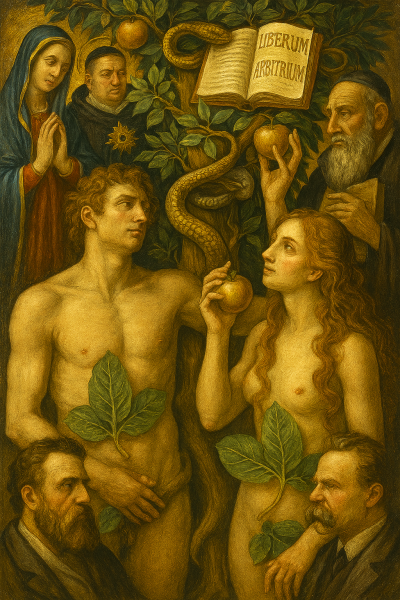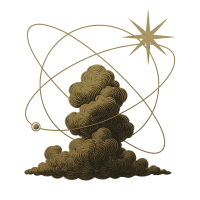Christianity and Free Will (the Fall of the robots)

I often hear the Tree of Knowledge framed in Christianity as the necessary component to grant people free will. God placed the Tree of Knowledge in the Garden of Eden and commanded that it not be eaten from, because it will give you the knowledge of Good & Evil and you will die.
It was our choice to eat from it. Or not.
But really that is not about choice at all; it’s about obedience. I suspect Adam & Eve were already able to make some decisions on their own with some form of free will, otherwise they would just be biological Robots of God.
The Tree was placed there by God. To tempt them? Isn’t that the role of the devil in traditional thinking?
The “cunning” serpent (not explicitly the Devil) did lay on some extra tempting things, but the architect of the whole scenario is God. He placed the Tree smack in the middle of the garden and painted an allure upon it.
Why would God do that?
The Catholic, and most other Christian views, is that Adam & Eve eating from the Tree of Knowledge was the original sin of disobedience. They chose to serve themselves over obedience to God. And as such, they were punished by the Separation from God and Eden and handed over to death. Humanity is fallen.
Interestingly the Jewish faith, from which this story originates in the Talmud, interprets this differently: there was no original sin at all – this was Adam & Eve’s choice, and theirs alone. And the Tree of Knowledge imparts yetzer ha-ra (the inclination toward self-interest), which isn’t evil per se, but rather a step along the way of growing up. God places the Tree, gives the command, but doesn’t set a trap. The story is about choice, not about temptation. And the exile from the Garden is not punishment but rather the beginning of human responsibility, toil, and ethical discernment.
In the original text, from the original religion of Judaism, the Eden story is a coming-of-age story. We move from innocence to moral complexity, and God remains our guide.
For my part, I see the Tree as a necessary component of awakening which God placed to invite discernment; a ritual of inquiry, reflection and decision with all its consequences.
The story was intended for a fairly primitive people, just beginning to try and make sense of the world and their lives.
I suspect God didn’t place the Tree of Knowledge there to make us fall, but rather to help our consciousness rise.
If there is a God, of course. (I have no photos).
